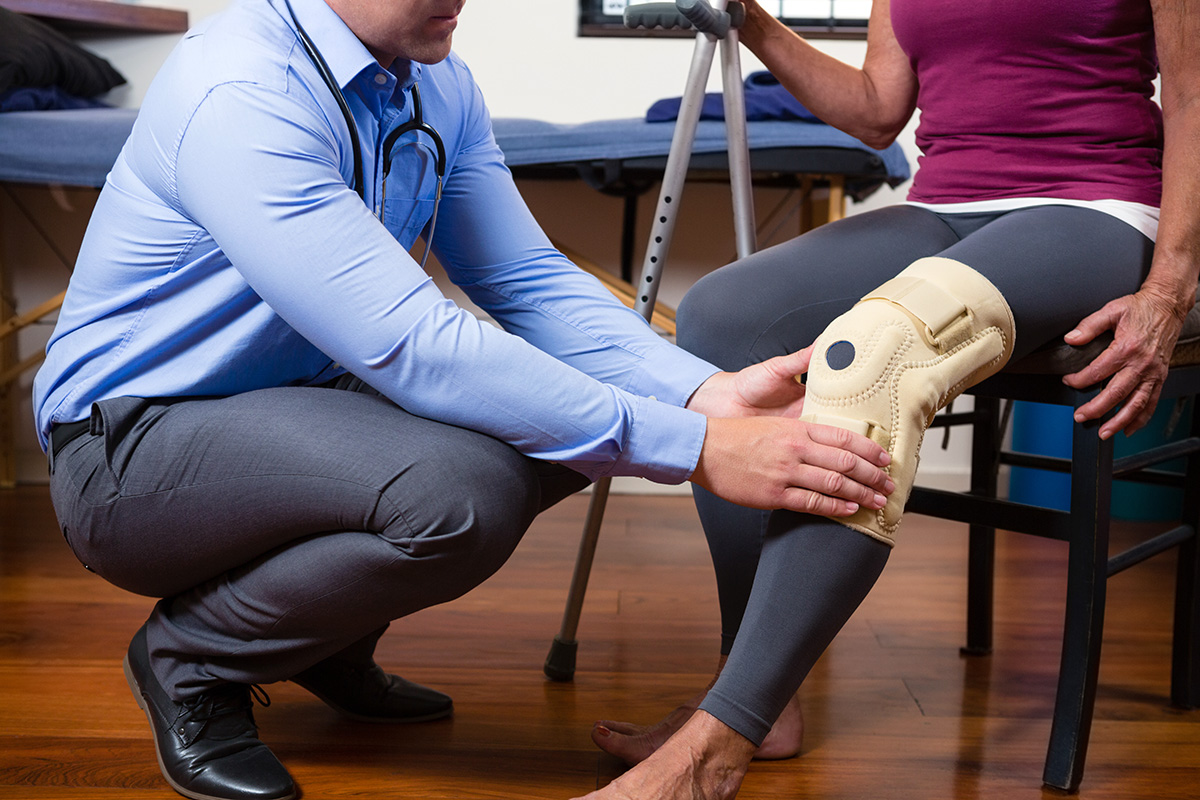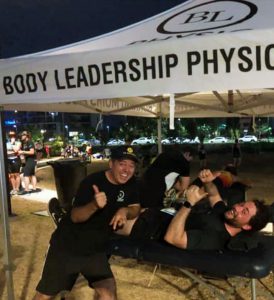
What Types of Physio Are There?
The types of physio are super varied. I was just talking to a friend about prepping crews for a crazy race coming up. Through the magic of technology, 15 of the best ultra runners in Oz are about to go up against the world’s elite to complete a 6.7km lap every hour (that’s 100 miles every 24hrs) until no one else on the planet can go any further.
The world record is currently 68hrs straight!! Sometimes my job can be next level fun and that’s just one small part of it. Anyway, it made me think about the massive variety and types of physio there are out there.

Photo of BL Physio team
Good to know what options there are so you can get to the right person for your specific condition. It’s hard to list them all but will try to get through the main ones.
The first category that comes to mind is the musculoskeletal as well sports type work. Basically, restoring function to muscles, tendons, nerves, joints, the whole system.
The focus is to get to the root cause of pain (or problem), optimise movement as well as technique and then help patients be independent long term with a whole toolkit of skills.
That’s the fun stuff I most enjoy!
Hospital Physio
There is so much more… A lot of physios work in hospitals focusing on many different areas. There are the emergency department physios who treat acute issues as well as cardiorespiratory care where they look after the heart and lungs. Orthopaedics is another common area. These physios are usually in hospitals helping people after surgery. If you’ve had a hip replacement or knee reconstruction, they will get you up and going again.
Neurological Physiotherapy
Neurology is another area, helping issues related to the brain and spinal cord. Examples are rehab for stroke victims, brain injuries, the list is endless. Some physios specialise in paediatrics, helping children from new born right through to adolescents with issues ranging from developmental delays, cystic fibrosis and even cerebral palsy.
Chronic Pain Physiotherapy
Some of the areas you may not be aware of are physios in pain clinics. Us physios have pretty cool strategies when it comes to pain. It’s incredible how many techniques there are for easing symptoms and as a profession, we love to share them so make sure you pick our brains.
Physio for Vertigo as well as Women’s & Men’s Physiotherapy
Other physios focus on balance issues, (‘vestibular’ physios). Another area often overlooked is Women’s and Men’s Health, managing incontinence (after birth for females and possibly post prostate surgery for men). With the Baby Boomers aging, Gerontology is a massive area now too. Unfortunately, it is similar with physios focusing of cancer treatments and palliative care.
That’s a fairly long list and it’s not even done.
“One of the areas we do a fair bit in as well is Occupational Health. I get excited when companies are interested in using athlete level techniques to help their staff stay injury free. Physio has evolved so far beyond ‘bend knees and back straight’ and it’s fun to take proactive techniques to all people, not just athletes. In that way a lot of physios have moved into educational fields as well. Sharing body skills and information is one of the most rewarding we do.”

Photo of Flash the Bulldog
Finally, my favourite type of physio is the Animal physios! One of my friends specialised in this straight out of university and I thought she was crazy at the time… I was wrong. Such a cool area, and they can help so much.
There is a massive correlation between human and animal anatomy. It isn’t my field, but I do like to experiment on ‘Flash’, the Bulldog. He recently had a bad case of ‘Bulldog Neck’ (not a real diagnosis) and it’s super similar to treating a human.
Bit of fun and worked well but definitely recommend using a trained animal physio for your pooch. Flash on the other hand has to take what he can get.
So that’s a quick run down of a lot of the different types of physio there are. To get a clear reference snap shot, I have also made a dot summary from the Australian Physio Association list of national groups. Here it is:
LIST OF TYPES OF PHYSIO’S
• Acupuncture and Dry Needling Physio Group (More of a technique than specific type of physio)
• Aquatic Physiotherapy (Some physios just do hydrotherapy while others offer it as part of their service)
• Cardiorespiratory Physiotherapy (Support Heart and lung issues, often in hospitals)
• Geriatric Physiotherapy (Gerontology, The oldies)
• Educators (We all love to teach and for some physios, it’s the only thing they do)
• Neurological Physiotherapy (tackling brain and spinal cord injuries)
• Orthopaedic Physiotherapy (Rehab, mainly in hospitals after bone and joint surgery)
• Chronic Pain Physiotherapy (Often in hospital clinics dealing with chronic pain strategies)
• Sports Physio and Exercise (Rehab as well as performance based)
• Animal Physio (Very cool)
• Cancer Physio, Palliative Care and Lymphodema group (They tackle the swelling that can occur after removal of lymph nodes and much more)
• Hospital Physio (Emergency Physio and Acute care)
• Musculoskeletal Physios (Focusing on muscles, tendons, joints etc. often in private practice)
• Disability Physios (Often in community care)
• Mental Health Group (Supporting patients with mental health as well as musculoskeletal issues)
• Occupational Health (Keeping workers safe and injury free including onsite physio which can be super effective)
• Paediatric Group (Treating the kids)
• Research Group (Some physios focus on research. They are normally in universities but can also be in the community)
• Pelvic Floor Physio (Looking after continence and other pelvic related issues)
• Women’s Physio (Women’s Health Physio)
• Men’s Physiotherapy (Looking after continence post prostate surgery)
• Vestibular Physio (Physio for Vertigo)
• Pediatric Physiotherapy (Child Physio)
• Back Physio (Physio for Back Pain)
• Neck Physio (Physio for Neck Pain)
• Pregnancy Physio
If you enjoyed this article, please share it with your friends and if you have any queries around the different treatment options available, get in touch with our friendly superhero team of physio’s on (07) 3847 8040.







